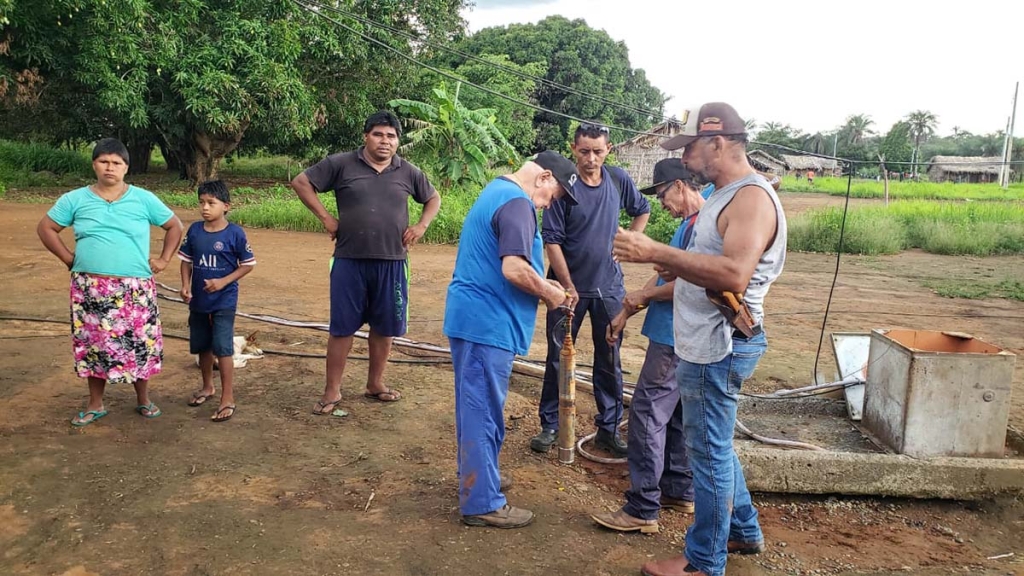BRAZIL: Well restoring project ensures clean water access in remote villages

Project is part of the Salesian Mission of Mato Grosso, which aims to provide technical support to Salesians working with Indigenous people
(MissionNewswire) Team members of the Ambulant Missionary Assistance (AMA) Project, led by Salesian Brother Alois, provided maintenance to seven artesian wells in Xavante villages in Campinápolis, Brazil. Heavy rains and thunderstorms are frequent in the region, and lightning often causes damage to well pumps, leaving communities without drinking water. The water of the rivers becomes muddy and unsuitable for human consumption, putting the health of Indigenous people, especially children, at risk.
The AMA Project is part of the Salesian Mission of Mato Grosso, which aims to provide technical support to Salesians working with Indigenous populations including the Xavante and Boe-Bororo ethnic groups.
“Projects like this help ensure that remote communities have access to the drinking water they need,” said Father Gus Baek, director of Salesian Missions, the U.S. development arm of the Salesians of Don Bosco. “Improving water access brings a sense of dignity to children and their families and reduces the number of waterborne illnesses affecting these villages.”
UN-Water estimates that worldwide 2.2 billion people are living without access to safe water. One in four primary schools has no drinking water service, with students using unprotected water sources or going thirsty. In addition, UN-Water notes that more than 700 children under age 5 die every day from diarrheal disease linked to unsafe water and poor sanitation.
Brazil has one of the strongest economies in Latin America and is an important agricultural and industrial power in the region. Just over 15 percent of Brazilians live in poverty, with the majority living in the rural northeast of the country, according to the World Bank. While Brazil is making positive changes, there are still large gaps between the poor and the rich, and issues of income inequality and social exclusion remain at the root of poverty.
Issues of income inequality and social exclusion remain the root causes for those in poverty. Inequalities also exist in access to education and educational efficiency. These inequalities are greatest for children and youth who are poor, live in rural areas or who have an incomplete compulsory education. Salesians working with poor youth and their families in Brazil develop programs and provide youth with opportunities for furthering their education and skills.
###
Sources:
ANS Photo (usage permissions and guidelines must be requested from ANS)
ANS – Brazil – AMA Project carries out maintenance of water wells in Xavante villages of Campinápolis
Salesian Missions – Brazil
World Bank – Brazil




